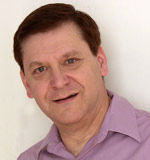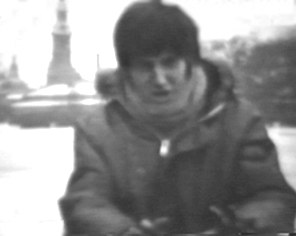Richard M. Robin
QUICK CONTENTS Links: |
What can I tell you about myself, other than what's on my Curriculum Vitae? My area is methodology of language teaching with emphasis on Russian. I began studying Russian in 1968 as a freshman at Georgetown University. I spent the summer after my sophomore year and the fall semester of my senior year at Leningrad State University. I the mid-1970s as graduate school in Ann Arbor at the University of Michigan. and then taught at the University of New Mexico and SUNY-Oswego before coming to GW in 1981. My interest in foreign languages started when I got a shortwave radio for my eleventh birthday, at the hight of the Cold War, a year before the Cuban missile crisis. I still remember the first Russian words I heard: "Говорит Москва" — "This is Moscow speaking..." However, like most high schools, ours didn't offer Russian. So I contented myself with Spanish until college. Russian at GW. "Knowing" a foreign language is not the same as being profcient in speaking and comprehension. And as a teacher, I have to set goals for my classes that are based not on grammar to be covered, but rather on real-life skills to be acquired. For example, I tell my first-year intensive students: If you complete the activities as assigned successfully, at the end of this course, you will be able to do these things:
Those things require skills beyond grammar and vocabulary — skills which teachers can and should teach explicitly. Much of learning a foreign language is essentially learning to run on empty.
Now, none of this is to say that grammar and vocabulary aren't important. But they are not the be-all and end-all of learning a foreign language. Of course, foreign-language teaching based on real-life goals requires adjustments not only to what goes on in class, but also in how students are evaluated. Therefore grades are based on all skills, not only the ability to fill in a blank with the right word on a given day. |

2009
|

